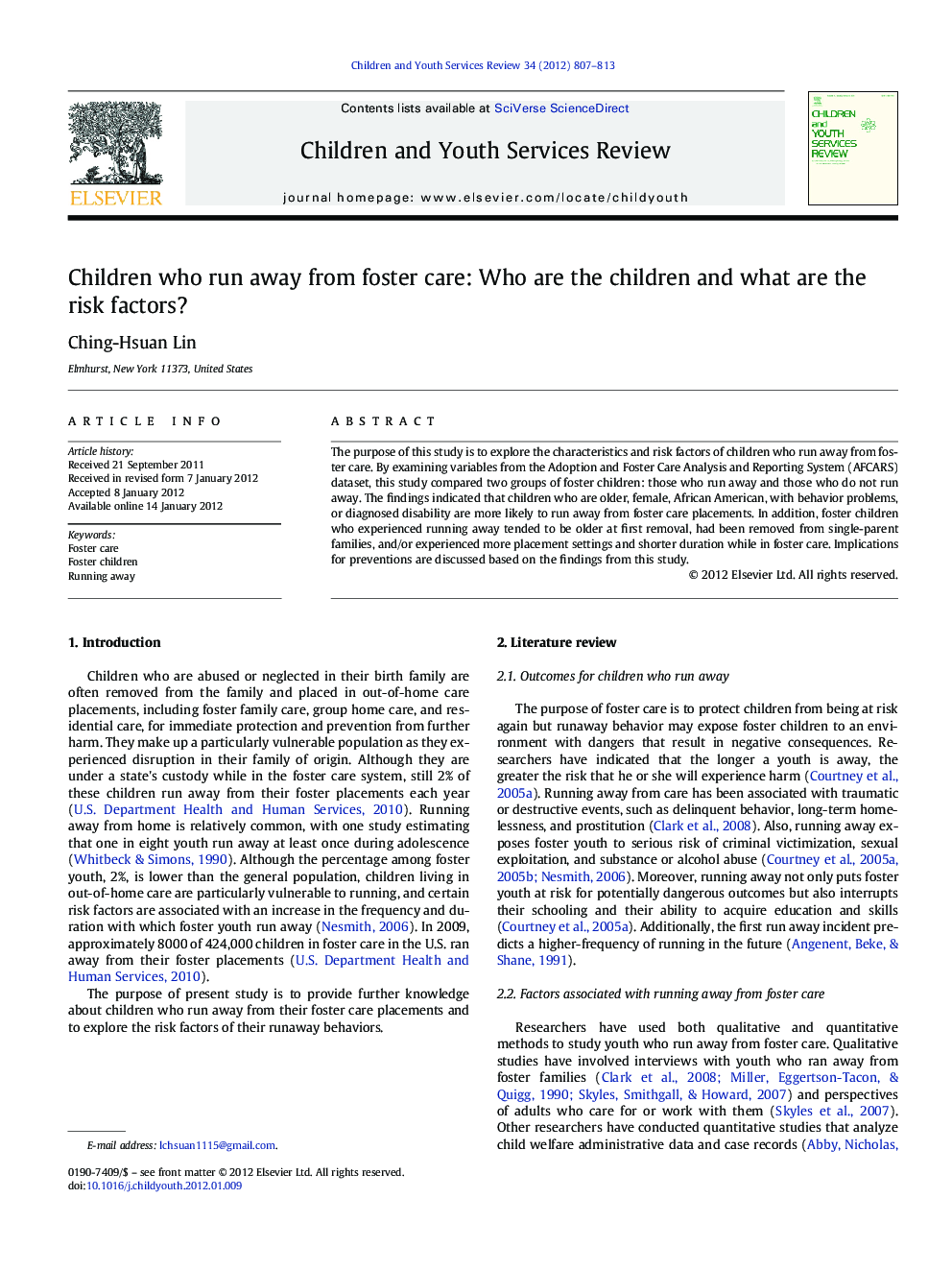| Article ID | Journal | Published Year | Pages | File Type |
|---|---|---|---|---|
| 347023 | Children and Youth Services Review | 2012 | 7 Pages |
The purpose of this study is to explore the characteristics and risk factors of children who run away from foster care. By examining variables from the Adoption and Foster Care Analysis and Reporting System (AFCARS) dataset, this study compared two groups of foster children: those who run away and those who do not run away. The findings indicated that children who are older, female, African American, with behavior problems, or diagnosed disability are more likely to run away from foster care placements. In addition, foster children who experienced running away tended to be older at first removal, had been removed from single-parent families, and/or experienced more placement settings and shorter duration while in foster care. Implications for preventions are discussed based on the findings from this study.
► Foster children who are older, female, or African American are more likely to run. ► Foster runaways are more from single-parent family. ► The instability of foster placement indicates running away incidents. ► Stabilizing placements prevents foster children from running away. ► Providing supportive services for foster children prevents runaway behavior.
